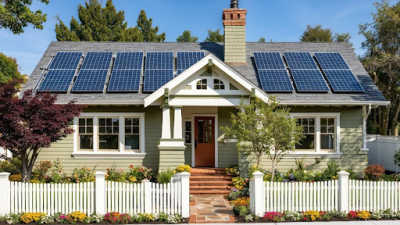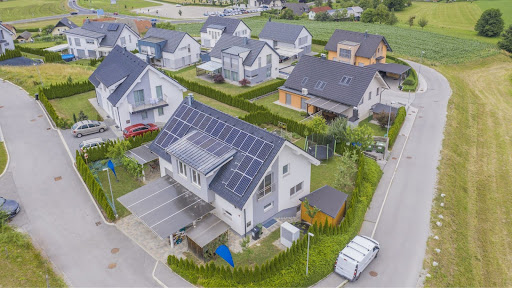Everything You Need to Know About Solar Panel Tax Incentives

Solar panel installations have surged across American neighborhoods as homeowners have embraced renewable energy solutions. State and federal government tax incentives have further spurred this trend, making the switch to renewable energy not only environmentally responsible but also financially feasible. Hiring professional solar panel roofers is the first step towards energy independence and realizing those financial savings.
Culpeper County, VA, homeowners can turn to Solarsimple for their solar energy needs. Our experienced technicians can customize your installation to your home, reducing dependence on traditional energy grids and maximizing financial benefits. With support from implementation to upkeep and beyond, the path to clean energy has never been easier. Call (540) 523-1492 today for a free solar panel estimate!
Below, we discuss everything you need to know about solar panel tax incentives:
What Are Federal Solar Panel Tax Incentives?
Also known as residential clean energy tax credits, solar panel tax incentives grant qualifying homeowners with solar equipment on their property a 30% credit on federal taxes. This program (and others like it) contradicts the pervasive belief that renewable energy systems are expensive. On the contrary, the cost of solar has dropped 89% in the last decade, and solar panel installations can boost property value by over 4%.
Capitalizing on these incentives helps offset installation and maintenance costs. Nevertheless, these tax credits are nonrefundable, so the amount you receive in credit cannot surpass the amount you were to pay in taxes.
Do I Qualify for Federal Solar Panel Tax Incentives?
To qualify for federal solar incentives, your system must be connected to your main home in the United States, regardless of whether you own or rent your home. You must also live in the house – in other words, you can’t collect the credit as a property owner or landlord. You may be eligible to collect partial credit for improvements to your second home; however, you must live there part-time and not rent to others.
Additionally, you cannot qualify for solar incentives if your home is used entirely for business purposes. Homes used for business up to 20% of the time are eligible for full credit, while those above 20% receive a credit proportional to their percentage of nonbusiness expenses.
How Can I Claim Solar Panel Tax Incentives?
To claim the residential clean energy tax credits, you must fill out IRS Form 5695 when filing your tax return. Calculate your eligible credit amount on Part I of the form, then record that amount on your 1040. You may also have to supply details (such as cost, specifications, and manufacturer certification) about your energy project. This federal tax credit is available regardless of the state in which you reside.
What Are State Solar Panel Incentives?
In addition to federal tax incentives, state-level incentives are available for homeowners. For example, Virginia residents who use solar power for house functions qualify for the Virginia Solar Renewable Energy Credit (SREC) program. This allows homeowners to earn credits for each megawatt-hour of solar energy their systems produce, which utility companies can purchase to meet their renewable energy needs.
Virginia’s net metering policies also allow homeowners to receive credits for any extra energy they generate and put back into their region’s grid. These credits allow homeowners to power their homes when their solar panels aren’t generating energy, like at night. Moreover, residents can use solar energy without immediately investing in solar battery storage.
How Can I Claim Virginia Solar Panel Incentives?

The requirements for the Virginia SREC program are similar to those of the residential clean energy tax credit: you must own a solar system installed within the state, and the system must contain a revenue-grade meter to participate. To sell energy credits, you must sign a contract with an SREC aggregator to determine a price at which all credits under a fixed period (usually 3-10 years) will be sold. The aggregator takes a cut for selling and handling the credits on the market.
To receive energy credits from Virginia’s net metering policy, submit a Net Metering Application form (NMIN) through your clean energy provider. After your application is approved, your meter will be exchanged, and you’ll begin to pay “net” costs on your energy bill (energy sent back subtracted from total energy delivered).
Get in Touch With Solar Panel Roofers in Culpeper County, VA
Understanding solar panel tax incentives allows homeowners to make a nuanced, responsible decision about renewable energy installation. Homeowners in Culpeper County, VA, can trust Solarsimple’s team of experienced solar panel roofers to customize a system that supports their finances and the planet. Call (540) 523-1492 today and make the switch to clean energy!